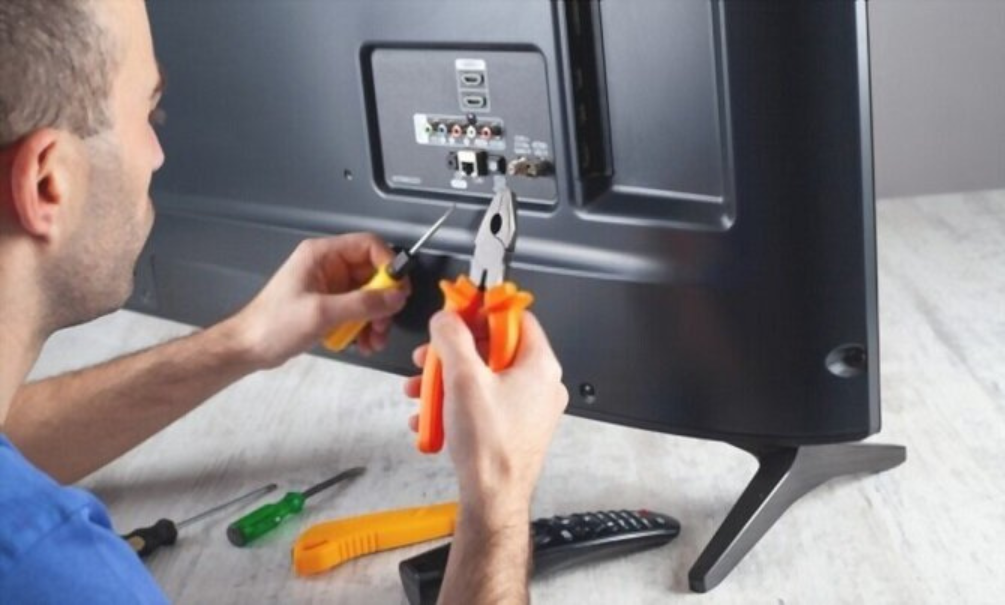In today's technology-driven world, televisions have become an essential part of our lives, serving as a primary source of entertainment, information, and relaxation. However, like any electronic device, TVs can experience issues over time. From picture and sound problems to connectivity issues, diagnosing these problems and deciding whether to call a tv repairman can be a daunting task. This article aims to guide you through the process of diagnosing common TV problems and helping you determine whether professional repair assistance is necessary.
Identify the Problem
Before you jump to conclusions and decide to call a repairman, it's important to identify the exact problem your TV is facing. Common TV issues include:
No Picture or Sound
If your TV isn't displaying any picture or sound, it could be due to several reasons. Check whether the TV is properly plugged in and the power outlet is functional. Also, ensure that the remote control or the TV's power button is working correctly.
Distorted Picture
A distorted picture could be a result of a faulty cable connection, a problem with the input source, or issues with the TV's internal hardware. Look for any loose cables and ensure that the input source (cable box, streaming device, etc.) is functioning properly.
Noisy or Distorted Sound
If your TV's sound is crackling, muffled, or otherwise distorted, it might be due to issues with the speakers, audio settings, or audio cables. Try adjusting the audio settings and checking the speaker connections.
Connectivity Problems
If your TV isn't connecting to the internet or other devices, the issue could lie with the Wi-Fi connection, HDMI ports, or software settings. Ensure that your Wi-Fi network is functioning, and try using different HDMI ports and cables.
Remote Control Issues
Sometimes, the problem may not be with the TV itself but with the remote control. If the remote isn't working, replace the batteries and ensure there's a clear line of sight between the remote and the TV's infrared sensor.
Basic Troubleshooting
Once you've identified the problem, it's time to perform some basic troubleshooting steps to rule out minor issues before considering professional repair:
Restart the TV
Turn off the TV and unplug it from the power source. Wait for a few minutes, then plug it back in and turn it on. This can often resolve temporary glitches.
Check Cables
Ensure all cables are securely connected to their respective ports. Loose or damaged cables can lead to various problems.
Test Different Inputs
If you're experiencing issues with a specific input source (e.g., HDMI, USB), try using a different input to see if the problem persists.
Factory Reset
If your TV has advanced settings, consider performing a factory reset. This will restore the TV to its default settings, which can resolve software-related issues.
Update Software:
Check if there are any available software updates for your TV model. Outdated software can lead to compatibility issues.
Research and Diagnose
If basic troubleshooting doesn't resolve the issue, you can dive deeper into diagnosing the problem yourself. Online resources such as manufacturer websites, forums, and user manuals can provide valuable insights into common TV problems and their potential solutions. Be sure to search for your specific TV model and the issue you're facing to find relevant information.
For more advanced users, you can also try opening the TV's settings menu to explore specific settings related to picture, sound, and connectivity. However, be cautious when making changes to settings you're unfamiliar with, as incorrect adjustments could exacerbate the problem.
When to Call a Repairman
While some TV problems can be resolved through basic troubleshooting and online research, there are instances when professional assistance is necessary:
Complex Hardware Issues
If the problem is related to internal hardware components like the display panel, mainboard, or power supply, it's best to leave the diagnosis and repair to trained professionals. These components are delicate and require specialized tools and expertise to handle.
Repetitive Problems:
If you've encountered the same issue multiple times, it's a sign that the problem might be chronic. A repairman can identify the underlying cause and provide a lasting solution.
Warranty Coverage
If your TV is still under warranty, attempting DIY repairs might void the warranty. In such cases, it's advisable to let authorized service centers handle the repair work.
Safety Concerns
If you suspect an electrical issue or notice unusual smells or sounds coming from your TV, it's essential to prioritize safety and seek professional assistance promptly.
Lack of Technical Expertise
If you're unsure about the problem's cause or lack the technical knowledge to perform intricate repairs, it's best to call a repairman to avoid causing further damage.
Choosing a Reliable Repair Service
When selecting a repair service, consider the following factors:
Reputation
Look for repair services with positive reviews and a good reputation in the industry. Recommendations from friends and family can also be valuable.
Experience
Choose a repairman or service that has experience with your TV brand and model. Specialized knowledge can lead to more accurate diagnoses and efficient repairs.
Cost
Request cost estimates from multiple repair services before making a decision. While cost is important, remember that quality repairs are worth the investment.
Warranty
Inquire about warranty coverage for the repair work. A reputable repair service should provide a warranty period for their services.
Transparency
Choose a repair service that communicates clearly about the problem, the repair process, and the expected outcome. Transparency fosters trust between you and the repair technician.
Conclusion
Diagnosing TV problems and deciding whether to call a repairman requires a systematic approach. Begin by identifying the problem, performing basic troubleshooting, and researching potential solutions. If the issue persists or if you encounter complex hardware problems, it's advisable to seek professional repair assistance. Choosing a reliable repair service based on reputation, experience, cost, warranty, and transparency will ensure that your TV is in capable hands. Remember that a well-maintained TV can provide years of entertainment, so it's worth investing in proper diagnosis and repair.





Comments